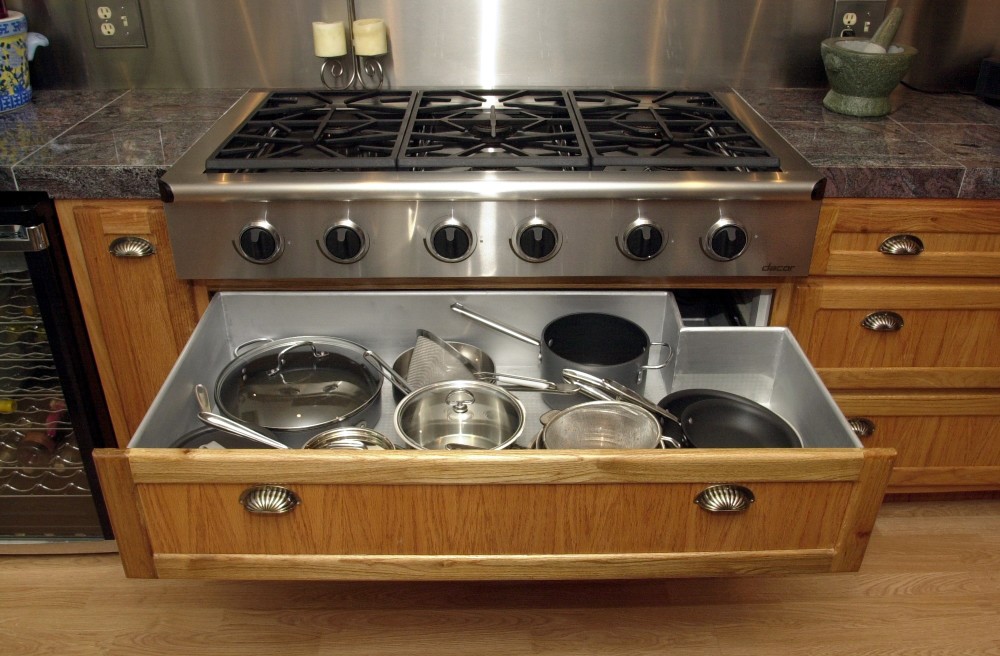By K.C. Myers
Cape Cod Times, Hyannis, Mass.
Lee Hill has a dream that, one day, dozens of foodies with nothing more than a winning recipe will create dozens of businesses — and hundreds of jobs — on Cape Cod.
With a long history in the corporate world and an enthusiasm for cooking, Hill has been working for several months on a project that could bring together small food-entrepreneurs with commercial-grade kitchens across the Cape.
His idea, dubbed the Cape Cod Culinary Incubator, recently received state nonprofit status. Hill said during a tour of the 9,000-square-foot addition to the Cultural Center of Cape Cod, which will include a new commercial kitchen, that he is now seeking federal nonprofit tax status for the venture.
Hill’s idea is to provide education, consultation and commercial space for young people fresh out of culinary school, or those looking to create and sell food products.
Hill, a Cummaquid resident since 2002, has been busily networking and researching his idea at local community centers and with foodies from Falmouth to Provincetown.
There are about 135 culinary incubators in the United States, he said.
They usually are centered around a kitchen that startup business owners rent by the hour to make and store their products.
A similar venture, the Kitchen Co-op in Amityville, N.Y., started nearly a year ago, and rents its 1,400-square-foot kitchen to 30 to 40 small-business entrepreneurs, owner Cindy Sierra said.
She charges $125 for four hours of use, plus more for storage.
“You start out with a lot of overhead,” Sierra said. “We’re just getting to the point where we can sustain ourselves.”
On Cape Cod, however, Hill may have found a way to get the incubator started without a new building.
He said he has spoken with the owners of at least 11 or 12 commercial-sized kitchens across the Cape that could potentially be part of a network of available facilities for rent by food-based startups. Plenty more in church basements and senior centers could be usable as well, he added.
“All these civic organizations that need revenue would love to share their kitchens,” he said.
Kitchens that have agreed to be a part of the incubator’s advisory council include the Pond Hill Community School in South Wellfleet and South Yarmouth’s Cultural Center of Cape Cod, he said.
So far, 30 to 40 people have agreed to be part of the advisory council.
“These are people who have a stake in economic development on Cape Cod,” he said.
Hill said he has also identified about 62 locally made products with owners that may benefit from an incubator.
“My vision is economic development,” said Hill.
Currently, this group sells products out of food trucks, at bed-and-breakfasts and at farmers markets. Some products are available at retail stores on- and off-Cape.
But at some point, these entrepreneurs hit a wall that prevents growth, Hill said.
Local boards of health require kitchens to be state-certified and inspected for commercial sales. Eventually, federal certification is required to sell to bigger retailers, such as Whole Foods Market.
buy zithromax generic buy zithromax online no prescription
That’s an expensive proposition for small-time bakers, Hill said.
Other businesses have no place to store the towers of cardboard boxes required for shipping. One business owner keeps boxes in her living room, he said.
Others, like Terri Horn, owner of Kayak Cookies, have figured out how to create and market a successful product. She’s found success with Salty Oats cookies.
In business since 2005, Horn now has her own commercial kitchen in Hyannis and four or five staff members. In the summer, packages of Salty Oats cookies are sold in about 60 stores, she said.
For her, however, delivery and shipping are an issue where she needs support.
Currently, she ships to Whole Foods stores in the Boston area by UPS.
“There has to be a more efficient way,” Horn said.
Horn, who is serving on the Cape Cod Culinary Incubator advisory board, said she wished the Incubator was around when she was starting out.
“It’s something that the Cape has needed for a long, long time,” Horn said. “And I think Lee is very smart business-wise. It’s a very timely idea.”
Hill said he still has a lot of work. But his own knowledge of business — and his research — tells him this is a good idea.
Hill has worked as vice president of marketing and sales for Ray-Ban, and sales manager of the U.S. operation of Leica Camera.
He currently works as an investment executive at Infinex Investment at Cape Cod Five Cents Savings Bank. His work establishing the incubator, however, is a personal quest and done outside the scope of his job.
“The next phase for me is fund-raising through membership dues to the organization,” he added.
He said he is looking for volunteers as well.
“At this point, it’s just a dream,” he said. “But I really think it’s doable.”
For more information, visit the venture’s website at www.ckc3.org.
___














































































































































































































































































































































































